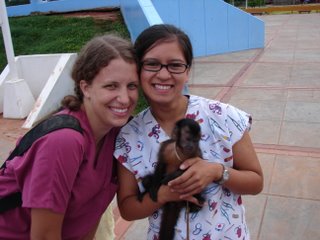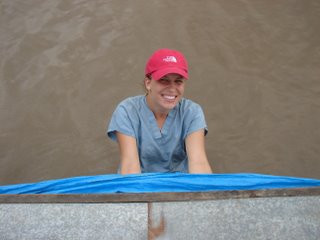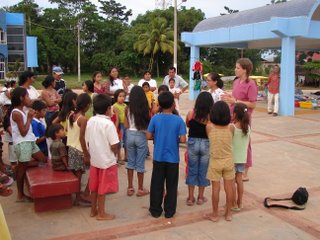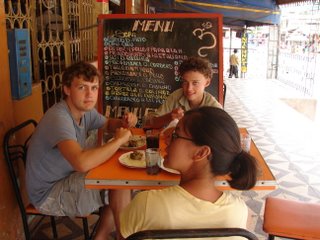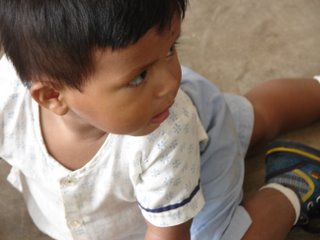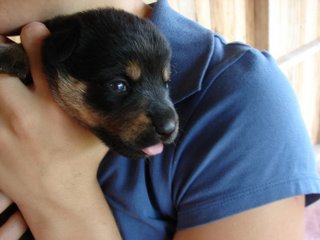Greetings from Puno, Perú, a chilly town on the banks of Lake Titicaca. (Quick refresher from seventh grade geography: Lake Titicaca is, at 12,700 feet, the highest navigable lake in the world. It's also home to hardy people who live in peculiar floating reed houses).
I'm on a trip to southern Perú and Bolivia to renew visas and soak up culture away from the jungle. On our way home we're planning to visit friends in Ecuador. Jackson, John, and Alex came along, too. Here's a brief log of our trip so far.
Sabbath, November 25
We leave Pucallpa by economy class bus (ie: filthy, no air conditioning, broken windows, and the price is right), and head to Lima at 8:00 pm. The night is long and windy. We first feel cold air on our faces at 2:00 am when we reach the foothills of the Andes mountains.
Sunday, November 26
Upon arrival to Lima around 6:00 pm, we head across town to buy bus tickets for the next leg of the trip. We land seats on a bus headed for Arequipa, way down the coast, leaving at 9:00 pm. While waiting for departure we explore a central plaza, witness a noisy protest in front of the Lima Sheraton Hotel, and eat tallerin saltado (pasta) at a menú. We also sit on the floor of the bus station and play cards while eating mangos.
Monday, November 27
For hour after hour on the 16 hour bus ride to Arequipa, we look out the windows at a barren, sandy desert, bordered on one side by the Pacific Ocean. I had no idea there was so much desert in Perú, and how odd to see it melt into the ocean. We find a very cheap and tranquil hostel in Arequipa and spend the evening exploring the gorgeous colonial town, marveling at cathedrals, ancient stonework, and cobbled streets worn smooth by foot travel. It's cold--we have to bundle up in layers, and burrow under thick covers.
Tuesday, November 28
Awake at 6:00 am, we hit the streets to embark on individual solitary wanderings across Arequipa. John and I both decide that we want to retire here-the city is amiable and clean yet focused and bustling. We leave for Puno at noon and endure another seven hours of busing over the dry Andes. I am nauseated and suffer headaches from the altitude for most of the trip.
We come down a mountain into the city of Puno at sunset. The green waters of Lake Titicaca, said to be the birthplace of the original Inca indian, sparkle with the city lights. We are excited to do some hiking and boating here, and hopefully also pick up some Quechua phrases.
(To be continued).

